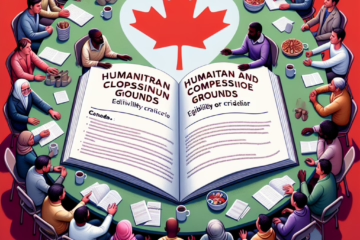British Columbia (BC), renowned for its breathtaking landscapes and vibrant cities, is also known for its high cost of living. For newcomers, navigating the expenses of life in BC can be daunting. However, with strategic planning and smart choices, it’s possible to enjoy the beauty and opportunities this province offers without breaking the bank. This article provides a comprehensive guide to managing your finances effectively in BC, covering essential topics from understanding the cost of living to finding budget-friendly entertainment options.
Table of contents
Understanding BC’s Cost of Living Basics

Relocating to British Columbia means adjusting to one of Canada’s highest costs of living. The province’s appeal, with its stunning natural beauty and robust economy, often comes with hefty price tags on housing, transportation, and daily necessities. It’s crucial for newcomers to familiarize themselves with the typical expenses they will face. Housing costs, particularly in cities like Vancouver and Victoria, are significantly higher than the national average, with rent and property prices often consuming a large portion of one’s income. Additionally, utilities, groceries, and healthcare can add up quickly, contributing to the overall financial burden.
Understanding the regional variations in living costs is also important. While urban centers in BC tend to be more expensive, rural areas often offer more affordable living conditions. However, this can come at the expense of access to certain amenities and job opportunities. Analyzing these trade-offs is vital for making informed decisions about where to settle. Furthermore, the provincial tax system, which includes a Goods and Services Tax (GST) and additional taxes on specific goods, should be factored into budgeting plans.
The cost of living in BC is also influenced by lifestyle choices. Dining out, entertainment, and recreational activities can quickly escalate expenses if not monitored. Newcomers should be prepared to adjust their habits and explore cost-saving alternatives. Embracing local markets, public parks, and community events can help mitigate some of these costs. Additionally, taking advantage of the province’s natural beauty for low-cost recreation, such as hiking and beach outings, can provide fulfilling experiences without significant expenditure.
Ultimately, understanding BC’s cost of living basics involves a thorough examination of personal needs, lifestyle preferences, and financial goals. By recognizing the key areas where expenses are likely to occur, newcomers can better prepare themselves to manage their finances and enjoy a comfortable life in this beautiful province.
Budgeting Strategies for BC’s High Prices
Creating a realistic budget is an essential step for anyone moving to BC. Given the high costs associated with living in the province, it’s crucial to have a comprehensive understanding of your income and expenditures. Start by listing all sources of income, including salaries, freelance work, and any other financial support. Then, categorize your expenses into fixed costs, like rent and utilities, and variable costs, such as groceries and entertainment. This will give you a clear picture of where your money is going and where you might be able to cut back.
One effective strategy is the 50/30/20 rule. Allocate 50% of your income to necessities, 30% to discretionary spending, and 20% to savings and debt repayment. In a high-cost area like BC, this might require some adjustments, especially in the necessities category. Consider prioritizing savings by automating transfers to a dedicated savings account. This ensures that you’re consistently setting aside money for future needs, even if your discretionary spending fluctuates.
Tracking your spending is another critical component of successful budgeting. Utilize budgeting apps or spreadsheets to monitor your financial habits over time. This will help you identify patterns and adjust your budget as necessary. Regularly reviewing your budget allows you to make informed decisions and avoid unexpected financial shortfalls. Additionally, consider setting specific financial goals, such as saving for a down payment on a home or paying off student loans, to maintain motivation and focus.
Finally, be flexible and open to change. The cost of living in BC can fluctuate due to economic conditions, policy changes, or personal circumstances. Being adaptable and willing to reassess your budget periodically will help you stay on track and manage your finances effectively. By implementing these budgeting strategies, newcomers can make the most of their time in BC without compromising their financial well-being.
Affordable Housing Options for New Residents
Finding affordable housing in BC can be a challenging task, especially in major urban areas. However, there are several strategies newcomers can employ to secure more budget-friendly accommodations. One option is to explore the rental market outside of city centers. Suburbs and smaller towns often offer lower rental prices while still providing reasonable access to urban amenities. Public transportation or carpooling can make commuting from these areas more manageable and cost-effective.
Another avenue to explore is shared housing. By renting a room in a shared apartment or house, newcomers can significantly reduce their living expenses. This arrangement not only helps with cost savings but also provides an opportunity to build a social network in a new city. Websites and apps dedicated to roommate matching can facilitate the search for compatible housemates, making the transition smoother and more economical.
For those considering purchasing a home, exploring government programs and incentives designed to assist first-time buyers can be beneficial. Programs such as the First-Time Home Buyer Incentive and the Home Buyers’ Plan offer financial assistance and tax benefits that can make homeownership more attainable. Additionally, working with a real estate agent who is familiar with the local market can provide valuable insights and help identify affordable opportunities.
Lastly, keep an eye on community housing projects and co-op housing options. These alternatives often provide more affordable rents in exchange for active participation in the community. While there may be waiting lists or eligibility criteria, these options can offer long-term stability and a sense of community for those willing to invest the time and effort. By exploring these affordable housing options, newcomers can find a suitable living arrangement that aligns with their financial situation.
Transportation Tips to Save Money in BC
Navigating transportation in BC efficiently can lead to significant savings. Public transportation systems, such as TransLink in Metro Vancouver and BC Transit in other regions, offer comprehensive networks that are often more cost-effective than owning a car. Monthly transit passes can provide unlimited travel for a fixed cost, making them an economical choice for daily commuters. Additionally, taking advantage of off-peak travel times can further reduce expenses.
For those who prefer driving, carpooling is an excellent way to share the cost of fuel and reduce wear and tear on your vehicle. Ride-sharing apps and community carpooling groups can help connect individuals traveling similar routes. Furthermore, consider using car-sharing services like Evo or Modo for occasional trips. These services offer the convenience of a personal vehicle without the ongoing costs of ownership, such as insurance, maintenance, and parking.
Cycling is another viable transportation option, particularly in urban areas with dedicated bike lanes and paths. Investing in a reliable bicycle can provide a one-time cost for daily commuting and recreational travel. Additionally, BC’s mild climate in many regions supports year-round cycling. Many cities also have bike-sharing programs that offer short-term rentals for those who prefer not to own a bicycle.
Lastly, walking is the most budget-friendly transportation option and can be incorporated into daily routines for short distances. Not only does it save money, but it also promotes physical health and reduces your carbon footprint. By considering these transportation tips, newcomers can navigate BC efficiently while keeping their travel expenses in check.
Grocery Shopping Hacks for Cost-Conscious Buyers
Grocery shopping in BC can quickly become a significant expense if not approached strategically. One effective method to save money is to plan meals in advance and create a shopping list based on those plans. This reduces impulse buying and ensures that you only purchase what you need. Additionally, consider preparing meals at home rather than dining out, as this can significantly cut down on food costs.
Shopping at local farmers’ markets can also be a cost-effective way to purchase fresh produce while supporting local agriculture. These markets often offer seasonal fruits and vegetables at competitive prices. Buying in bulk, particularly for non-perishable items, can lead to savings as well. Look for bulk food stores or larger grocery chains that offer discounts on bulk purchases.
Another strategy is to take advantage of loyalty programs and digital coupons offered by grocery stores. Signing up for these programs can provide access to exclusive discounts and promotions. Many stores also have weekly flyers or apps that highlight sales and special offers. Comparing prices between different stores and taking advantage of these deals can lead to substantial savings over time.
Finally, consider reducing food waste by properly storing groceries and using leftovers creatively. Planning meals that utilize similar ingredients can help minimize excess and ensure that food is consumed before it spoils. By implementing these grocery shopping hacks, newcomers can manage their food expenses effectively and enjoy nutritious meals without overspending.
Entertainment on a Budget: Exploring BC’s Freebies
Enjoying the vibrant culture and natural beauty of BC doesn’t have to come with a hefty price tag. There are numerous free or low-cost activities available for those willing to explore. Many cities host free community events, such as outdoor concerts, festivals, and art exhibits, which provide entertainment without the financial burden. Checking local event calendars can help newcomers discover these opportunities.
Nature lovers will find BC to be a paradise of free outdoor activities. The province boasts numerous parks, hiking trails, and beaches that offer stunning views and recreational opportunities at no cost. Exploring these natural spaces can provide a fulfilling and budget-friendly way to spend leisure time. Whether it’s a day at the beach, a hike through the mountains, or a picnic in a local park, the options are plentiful.
For those interested in arts and culture, many museums and galleries offer free admission days or discounted rates for specific groups, such as students or seniors. Additionally, public art installations and historic sites are often open to the public at no charge. Taking advantage of these cultural offerings can enrich your experience in BC without straining your finances.
Lastly, consider joining local clubs or community groups that share your interests. Many organizations host free or low-cost events, workshops, and activities that provide entertainment and social engagement. By exploring BC’s freebies and budget-friendly entertainment options, newcomers can enjoy the richness of the province without overspending.
Important: Please note that the information here is not meant to be legal advice. Do not solely rely on the information given here; it is important that you consult with a lawyer regarding any legal advice. Pax Law Corp. is not responsible for any reliance on the contents of this blog post. Any faces posted on this blog post is totally AI generated and they are not intended to represent any person in the real world. Any similarities are completely coincidental.
1. What is the cost of living in British Columbia?
The cost of living in British Columbia is among the highest in Canada, with significant expenses in housing, transportation, and daily necessities.
2. Why is housing so expensive in BC?
Housing prices in BC are high due to factors like limited supply, high demand in urban areas, and the appeal of the province’s natural beauty and economy.
3. How can newcomers to BC manage high living costs?
Newcomers can manage costs by creating a realistic budget, exploring affordable housing options, and adjusting their lifestyle choices to save money.
4. What are the typical housing expenses in BC?
Housing costs in BC, particularly in cities like Vancouver and Victoria, include high rent prices and property prices, often consuming a large portion of one’s income.
5. Are there cheaper areas to live in BC?
Yes, rural areas or smaller towns in BC often offer more affordable living options compared to larger urban centers like Vancouver and Victoria.
6. How can I save on transportation in BC?
You can save on transportation by using public transit, carpooling, using car-sharing services, or cycling instead of owning a personal vehicle.
7. What is the 50/30/20 budgeting rule?
The 50/30/20 rule allocates 50% of your income to necessities, 30% to discretionary spending, and 20% to savings and debt repayment.
8. How can I cut costs on groceries in BC?
To save on groceries, plan meals in advance, shop at local farmers’ markets, buy in bulk, and use store loyalty programs and coupons.
9. Are there free entertainment options in BC?
Yes, BC offers many free activities, including outdoor concerts, festivals, parks, hiking trails, and community events.
10. How can I save on utilities in BC?
To save on utilities, be mindful of energy consumption by using energy-efficient appliances and turning off lights and electronics when not in use.
11. What are shared housing options in BC?
Shared housing involves renting a room in a shared apartment or house, which can help reduce living expenses and provide a social community.
12. What government programs help first-time homebuyers in BC?
First-time homebuyers in BC can take advantage of programs like the First-Time Home Buyer Incentive and the Home Buyers’ Plan for financial assistance and tax benefits.
13. What is the provincial tax system in BC?
BC has a provincial sales tax (PST) in addition to the federal Goods and Services Tax (GST), which affects goods and services purchased in the province.
14. How can I find budget-friendly housing in BC?
Explore rental options in suburban areas, consider shared housing, or look into government housing programs and co-op housing for more affordable options.
15. How do I make a budget for high living costs in BC?
Start by tracking your income and expenses, categorize your costs, and follow a budgeting method like the 50/30/20 rule to allocate funds wisely.
16. Can I find affordable housing outside of Vancouver?
Yes, areas outside of Vancouver, such as smaller towns and suburbs, often have lower rental prices, offering more affordable living options.
17. What are the advantages of public transportation in BC?
Public transportation is cost-effective, convenient, and environmentally friendly, providing an affordable alternative to owning a car in BC.
18. What are the best ways to save money on groceries in BC?
Plan meals, shop at farmers’ markets, buy in bulk, and take advantage of store loyalty programs and sales to save money on groceries in BC.
19. Are there any apps to help with budgeting in BC?
Yes, apps like Mint, YNAB (You Need A Budget), and GoodBudget can help track spending, manage budgets, and save money in BC.
20. How can I reduce food waste in BC?
To reduce food waste, store food properly, plan meals, and creatively use leftovers to avoid unnecessary spending on groceries.
21. How can I find free or low-cost entertainment in BC?
Look for free community events, visit public parks, enjoy hiking or beach outings, and check out discounted museum admission days for affordable fun.
22. What are the benefits of using ride-sharing services in BC?
Ride-sharing services can save on fuel and parking costs, provide a convenient transportation option, and allow you to share costs with others.
23. Is cycling a good transportation option in BC?
Yes, cycling is affordable, eco-friendly, and suitable for urban areas with dedicated bike lanes, making it an excellent option for commuting in BC.
24. What are co-op housing options in BC?
Co-op housing allows residents to live in affordable housing managed by a cooperative group, where rent is often lower than market prices.
25. What are the best grocery stores for discounts in BC?
Stores like Costco, Save-On-Foods, and No Frills often offer discounts, bulk deals, and weekly sales to help you save on groceries.
26. How can I stay motivated to save in BC?
Set specific financial goals, such as saving for a down payment or paying off debt, and track your progress to stay motivated to save money in BC.
27. What are the cheapest places to live in BC?
Smaller towns like Kamloops, Nanaimo, and Kelowna offer more affordable living compared to high-demand cities like Vancouver and Victoria.
28. How do I save money on health insurance in BC?
BC residents can access the provincial Medical Services Plan (MSP), which covers essential health services. Private insurance can be used for additional coverage.
29. How do I find affordable furniture in BC?
Shop secondhand at thrift stores, online marketplaces like Craigslist, or discount furniture outlets to find affordable furniture in BC.
30. What are the best free outdoor activities in BC?
Explore BC’s many hiking trails, beaches, parks, and nature reserves to enjoy free outdoor activities and take in stunning views.
31. How can I save on dining out in BC?
Save by dining at local markets, opting for casual eateries, or cooking at home instead of eating out at expensive restaurants in BC.
32. How can I reduce transportation costs in Vancouver?
Consider using public transit, carpooling, or cycling to reduce transportation costs in Vancouver rather than owning a personal vehicle.
33. What are some budget-friendly recreational activities in BC?
Try hiking, cycling, visiting free local attractions, or participating in community events for low-cost recreational activities in BC.
34. How do I budget for high rent in BC?
Consider renting outside the city center, sharing accommodations, or finding subsidies and incentives to help offset high rent costs in BC.
35. What is the BC rental market like?
The BC rental market is competitive, especially in urban areas, with high demand and limited availability, leading to higher rental prices.
36. Are there financial tools to help me plan my budget in BC?
Yes, tools like spreadsheets, budgeting apps, and financial planners can help you track and adjust your budget in BC to stay on top of expenses.
37. How do I find deals on groceries in BC?
Take advantage of weekly flyers, online grocery apps, and special sales at grocery stores to find the best deals on food in BC.
38. How can I save on home repairs in BC?
Consider DIY projects, using discounts from hardware stores, or hiring affordable local contractors for home repairs in BC.
39. How do I find a job in BC to support my budget?
Use job search engines, local employment agencies, and networking to find job opportunities that align with your financial goals in BC.
40. What are the best budget-friendly cities to live in BC?
Smaller cities like Nanaimo, Kelowna, and Kamloops offer lower living costs compared to Vancouver and Victoria, making them great budget-friendly options.
41. How can I save money on utilities in BC?
Switch to energy-efficient appliances, reduce water and energy consumption, and explore discounts or rebates from utility providers in BC.
42. Are there community events to enjoy for free in BC?
Yes, many cities in BC host free events like outdoor festivals, concerts, and public art displays that you can enjoy without spending money.
43. What are some low-cost ways to explore BC’s culture?
Take advantage of free museum days, visit public art exhibits, and attend community workshops to explore BC’s rich cultural offerings.
44. How can I reduce my monthly spending in BC?
Track your spending, reduce discretionary costs like dining out and entertainment, and prioritize savings to manage your monthly budget effectively in BC.
45. What are the best ways to manage high living costs in BC?
Manage high living costs by budgeting effectively, exploring affordable housing options, and taking advantage of free or low-cost activities in BC.



0 Comments